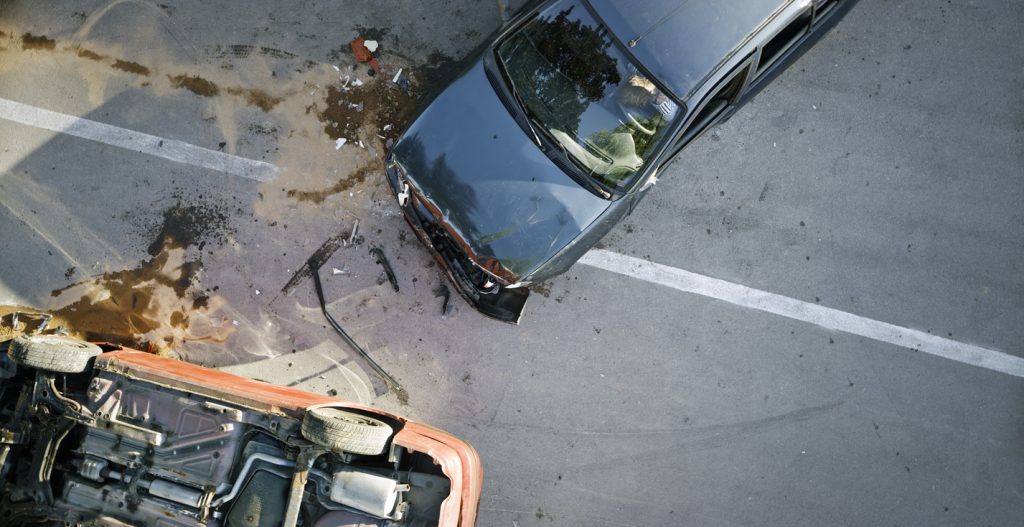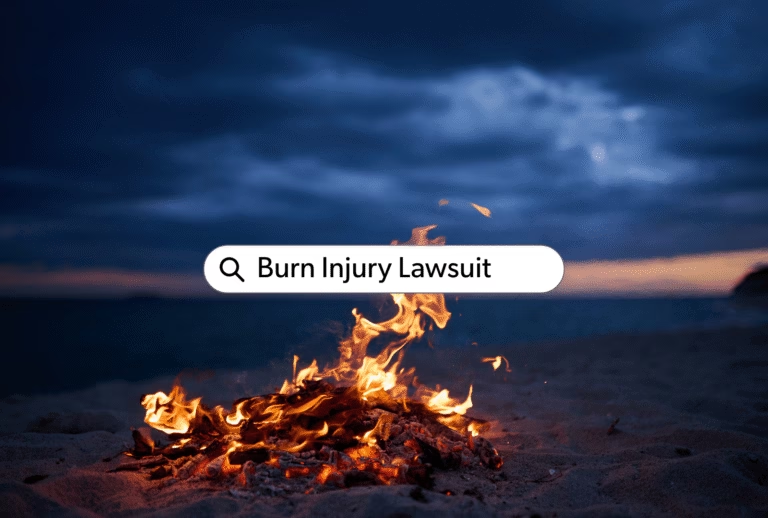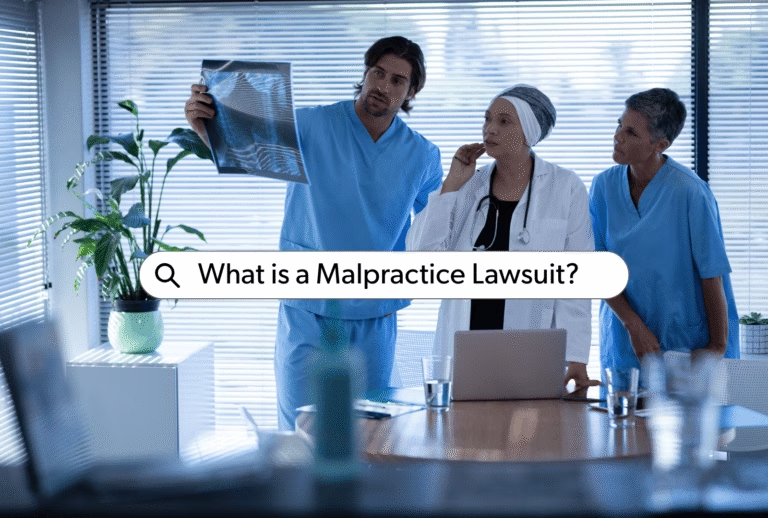Yes, you typically can sue someone for a car accident in California if they were negligent or intentionally caused a car crash. California law allows car accident victims to pursue legal action and file a personal injury claim to recover compensation for car accident damages, like medical expenses, lost wages, pain and suffering for those who suffered injuries, and property damage.
Elements of a Car Accident Claim in California
To win a car accident lawsuit, you must establish the following:
1. Duty of Care
Drivers in California are legally obligated to exercise reasonable care while operating a vehicle. They should follow traffic laws, maintain vehicle control, and avoid the threat of an auto accident.
2. Breach of Duty
A driver must demonstrate that the negligent party, or at-fault driver, breached their duty of care, which can include things like:
- Speeding.
- Running a red light or stop sign.
- Distracted driving (if they’re texting while driving, for example).
- Driving under the influence of alcohol or drugs.
3. Causation
It must be shown that the at-fault party had breach of duty that directly caused the car accident and any injuries. For example, if a driver ran a red light and hit another car, their negligence would be the direct cause of any injuries the other driver sustained.
4. Damages
You must prove that you suffered actual damages as a result of the car accident. Damages can include financial losses, emotional distress, or physical injuries.
California’s Pure Comparative Negligence Rule
California follows a pure comparative negligence system, which means that even if you were partially at fault for the accident, you may still be able to recover damages. However, your compensation would be reduced by your percentage of fault.
For example, if you were found 30% responsible for the accident and your total damages amount to $100,000, you would receive $70,000.
Types of Damages You Can Claim
Victims of a car accident in California may be able to seek the following damages, or sue someone personally, for:
Economic Damages
- Medical Bills: Costs for emergency care, surgery, rehabilitation, and future medical needs due to the auto collision.
- Lost Wages: Income lost due to time away from work.
- Property Damage: Costs to repair or replace your vehicle and other damaged property after the accident happened.
Non-Economic Damages
- Pain and Suffering: Compensation for physical pain and emotional distress.
- Loss of Enjoyment of Life: Damages for the inability to participate in activities you once enjoyed.
Punitive Damages
In rare cases, punitive damages may be awarded if the at-fault driver’s behavior was particularly reckless or malicious, such as in cases of intentional harm or extreme drunk driving.
Steps to Take Before Filing a Lawsuit
- Gather Evidence: Collect photos of the accident scene, any injuries, property damage, any rental car costs that arise, and proof of an insurance claim, if applicable. Obtain police reports and witness statements.
- Seek Medical Attention: Prompt medical treatment is essential for your health and to document your injuries.
- Consult a Car Accident Attorney: An experienced car accident lawyer or personal injury lawyer can evaluate your case, negotiate an insurance settlement, and represent you in court in a personal injury lawsuit, if necessary.
How Long Do You Have to File a Claim After an Accident in California?
In California, someone who wants to file a claim personally after a car accident is bound by specific legal deadlines, called statutes of limitations. These deadlines are critical to ensure your case is heard and that you can seek compensation for costs like medical expenses, lost wages, and pain and suffering.
Statute of Limitations for Personal Injury Claims
The statute of limitations to file a personal injury lawsuit after a car accident in California is two years from the date of the accident. This deadline applies to someone seeking compensation for physical injuries caused by the car wreck. If you miss this deadline, your case can be dismissed by the court, and you may lose the right to recover car accident compensation.
Exceptions to the Two-Year Rule
There are a few circumstances where the statute of limitations could be extended:
- Discovery of Injury: If you did not immediately discover an injury caused by the car accident (like a brain injury), the clock may start on the date you became aware of it.
- Minor Victims: If the victim was under 18 at the time of the car accident, the statute of limitations begins on their 18th birthday.
Statute of Limitations for Property Damage Claims
If you are filing a claim to pursue compensation for vehicle repairs or other property damage, the statute of limitations can be three years from the date of the car accident. This usually only applies to property damage claims, and is separate from claims for injuries suffered due to a negligent driver.
Why Statutes of Limitations Are Important
- Preservation of Evidence: Filing an insurance company claim promptly helps ensure that evidence like accident reports, witness testimonies, and surveillance footage is documented.
- Legal Standing: Failing to meet the deadlines may result in a car accident case being dismissed.
- Insurance Negotiations: Knowing the statute of limitations can give you leverage when negotiating with insurance companies.
Steps to Take Before Filing a Claim for Car Accidents
- Document the Car Accident: Gather photos of the scene, damage, and injuries. Obtain a copy of the police report.
- Seek Medical Attention: Immediate medical care not only aids your recovery but also creates a record of your injuries.
- Notify Insurance Companies: Inform your insurance provider and the at-fault party’s insurer promptly to initiate the claims process.
- Consult an Experienced Attorney: An experienced personal injury attorney can guide you through the process, ensure you meet deadlines, and maximize your financial compensation. Lawyers for Justice, P.C. offers a free consultation for those involved in car accidents.
When To Call A Lawyer After A Car Accident? – FAQ
can you sue an insurance company for negligence? You may be able to sue your own insurance company, or another, for negligence if you are able to prove that they violated their duty of care to you as a policyholder.
can you sue after a car accident? Yes, depending on the issues relating to the accident.
can you sue car insurance company? It may be possible, but it depends on the incident and if you can prove wrongdoing by the company.
is it worth suing after a car accident? Pursuing compensation can depend on the nature of the damages the collision caused.
can i sue someone for rear ending me? You may be able to sue, depending on the incident. Consider requesting a free legal consultation from a personal injury lawyer.
can you sue for negligence in car accident? A car accident victim can sue if the other driver was negligent, they failed to exercise reasonable care, and they caused the accident.
how to sue someone’s car insurance? Consider consulting with a car accident lawyer who can help navigate the legal process.
can you sue someone for totaling your parked car? If a parked car is struck by another vehicle and the driver leaves the scene of the crash, it can constitute as a hit-and-run. You should report the crash to the police, insurance company, and potentially even a personal injury lawyer to explore legal options.
who do i sue after a car accident? Typically, a victim could sue the driver at fault for the crash, as well as the owner of the car. If the driver was on the job, then their employer could also be sued.
can i sue if i get hit by a car? Typically, yes. You may be eligible for compensation that will help you financially and emotionally recover.
when should you sue after a car accident? Try to take legal action as soon as possible.
can i sue for emotional distress after a car accident? California generally accepts emotional distress and suffering as as types of compensation for a personal injury lawsuit.
how long after a wreck can you sue? Usually, two years from the date of the wreck.
can you sue for property damage in a car accident? Generally, yes.
how long does insurance company have to investigate a claim? An insurance company generally has a little over a month to investigate and approve a claim.
Last Updated on May 21, 2025



